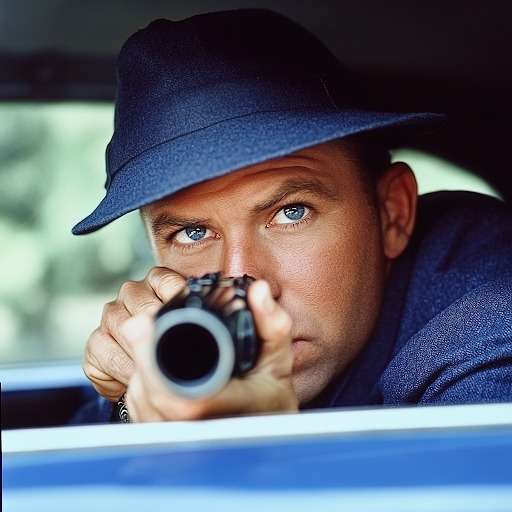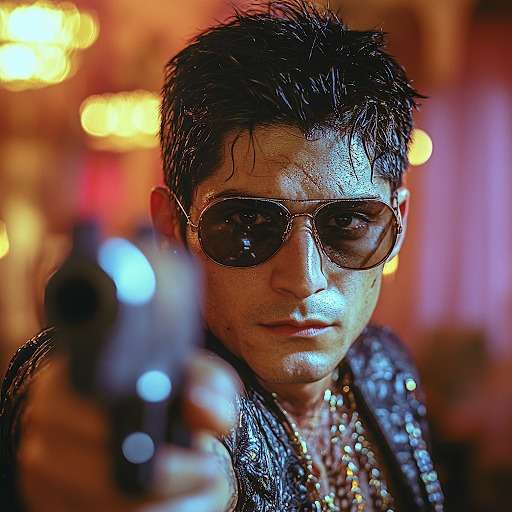Spy movies have captured the imagination of people since the creation of this genre. From the tech-savvy 007 agent to Jason Bourne, everyone loves mysterious characters who have extraordinary skills and are willing to risk it all for their country and the woman they love.
Here’s a brief history of the evolution of spy movies and what makes them so interesting to watch.
The Cold War
The Cold War era, which started after World War II, was a historic period of great instability. Much like today, major countries like the US and USSR were in a state of non-physical conflict (for the most part, at least), and much was written about this topic.
Naturally, Hollywood being Hollywood, and writers being creatures who want to capture the imagination of the general public, stories based on real characters and historic events started to be created. They spoke of intricate characters with multiple identities, who struggled to achieve immensely important goals while risking their lives.
In between the action scenes, a world of intrigue, danger, and deception was depicted, encapsulating politics, technology, and much more.
The spy genre can be traced back to the start of the 20th century and the First World War, but it was the Cold War that really gave it the necessary material to become truly popular.
The Birth of the Spy Genre: Realism and Intrigue
Movies like Alfred Hitchcock’s “The 39 Steps” (1935) laid much of the groundwork for the genre. Suspense, witty remarks, and a combination of realism mixed with impossible odds and coincidences created very memorable stories.
During the Cold War, the spy genre drew inspiration from the political tensions that existed around the globe. Real-life espionage, driven by countries’ need to know what their rivals were doing and by the fear of nuclear war, generated thousands of pages of novels and movie scripts.
Films like “The Spy Who Came in from the Cold” (1965) showcased the challenging aspects of intelligence jobs. Spies were portrayed as mere pawns in a brutal game of power played not just by large organizations but entire countries.
This idea was later depicted in films like “Spy Game” (2001), in which one of the main ideas is this: “It’s not how you play the game, it’s how the game plays you.” For those who lived and often died working as spies, nothing could be more true.
The feeling of distrust that’s constantly presented in spy films deeply resonates with a large audience because it resembles, at least to some extent, the distrust that exists in society at large. These days, trusting politicians, the media, or even scientists can be a risky decision. Trust in our institutions is quickly diminishing, which makes spy films all the more relatable.
The Rise of the Super Spy: James Bond and Beyond
James Bond, first portrayed by Sean Connery in “Dr. No” (1962), is a legendary character designed to charm, persuade, and instill a bit of fear. This man is the ultimate spy and hitman, understanding the realities of his craft to perfection and always finding himself in situations where the stakes are high, the odds are low, and the women are irresistible.
Bond’s influence on our culture cannot be denied. Some were influenced by his dressing style, others by his manner of speaking. Some loved the gadgets portrayed in Bond movies and wanted to recreate them.
Spy films often depict luxurious places and buildings, such as casinos, seeking to create in the viewer’s mind the impression of elegance, risk-taking, and power.
The characters depicted in movies like the ones from the James Bond series are unapologetic, smart, and very well-connected. They understand how the world works and have an area of expertise that few people understand. And when they live life, they do it to the fullest extent possible, understanding that each day could be their last.
Modern Spy Movies
Over the past 20 years, lots of spy films have tried to slowly change our perception of spies, portraying them as highly technical specialists and even heroes.
Some of the titles that come to people’s minds when they think about modern spy movies are “Mission Impossible”, “The Bourne Trilogy”, and “Black Widow”. Christopher Nolan’s “Tenet” is another famous example.
All of these films, and many more like them, depict spies in a variety of situations and try to make them not just cool, but admirable and relatable.

















